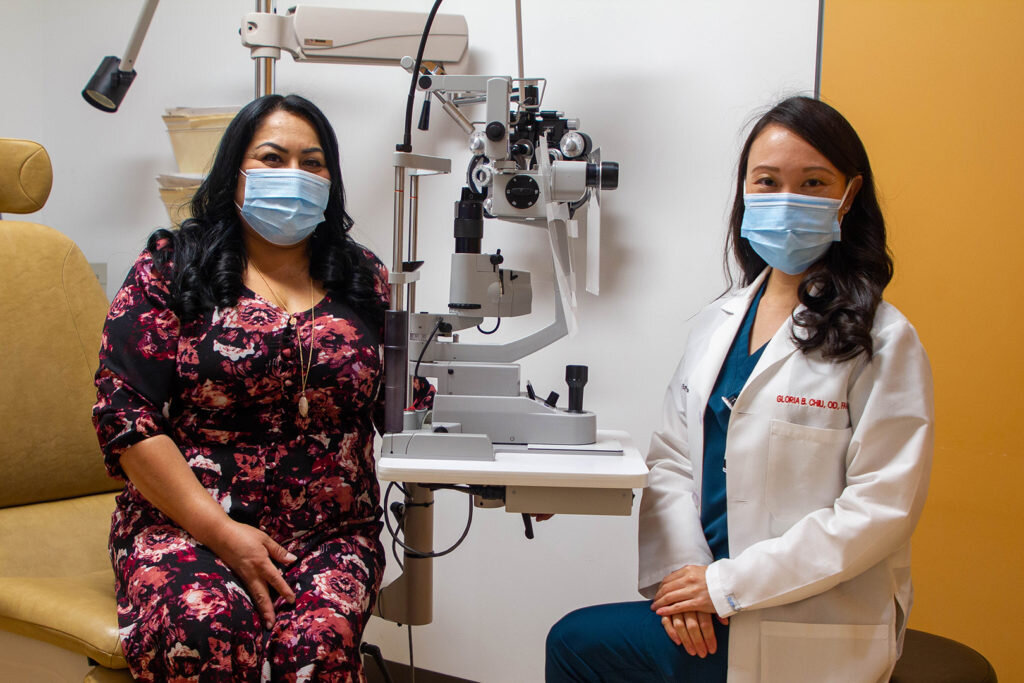Courtesy of the University of Southern California. The original article appears in Medical Express
Three years ago, an outside clinic diagnosed Maria Contreras with keratoconus, a degenerative eye disease that causes thinning and bulging of the cornea. Though the clinic followed her for years, Maria saw no improvement in her vision and continued to suffer from poorly corrected irregular astigmatism, a lack of depth perception, and significantly decreased vision in both eyes. Her deteriorating vision was affecting her daily activities, especially at night. She was even told by her doctor that she might have to give up her driver’s license.
“Eventually, I knew their treatment wasn’t working and I needed to do my own research,” Maria said. “There had to be other options for me.”
A friend, who’d received treatment for a similar condition at the USC Roski Eye Institute, recommended that Maria schedule a consultation with Dr. Gloria Chiu. Dr. Chiu is an optometrist who focuses on prescribing specialty contact lenses for various eye conditions, including keratoconus. Although the prevalence of the eye disease ranges from about 1-4% globally, a high volume of patients who seek care and treatment from Dr. Chiu have this condition.
With Maria’s diagnosis established, Dr. Chiu learned that Maria had only been prescribed glasses to correct her vision. “This surprised me because for many keratoconus patients, glasses don’t work adequately once the condition becomes more advanced and the eye shape has become distorted,” said Dr. Chiu. “This is when specialty contact lenses or scleral lenses are required to best correct the vision.”
Dr. Chiu at first fitted Maria with rigid gas permeable (RGP) contacts, and although Maria’s vision improved, she remarked that the bulky lenses were uncomfortable. “I felt like I had an eyelash stuck in my eye,” Maria recalled.
Dr. Chiu then presented Maria with another option, PROSE treatment. PROSE (or: Prosthetic Replacement of the Ocular Surface Ecosystem) utilizes a special software program to create scleral devices that are customized to match the unique contour of a patient’s eye.
“The moment I put them on, I started to cry,” Maria said. “I knew this was something amazing.”
Read the full article and learn how PROSE helped Maria at Medical Express here.
